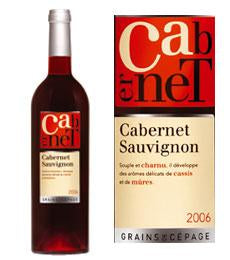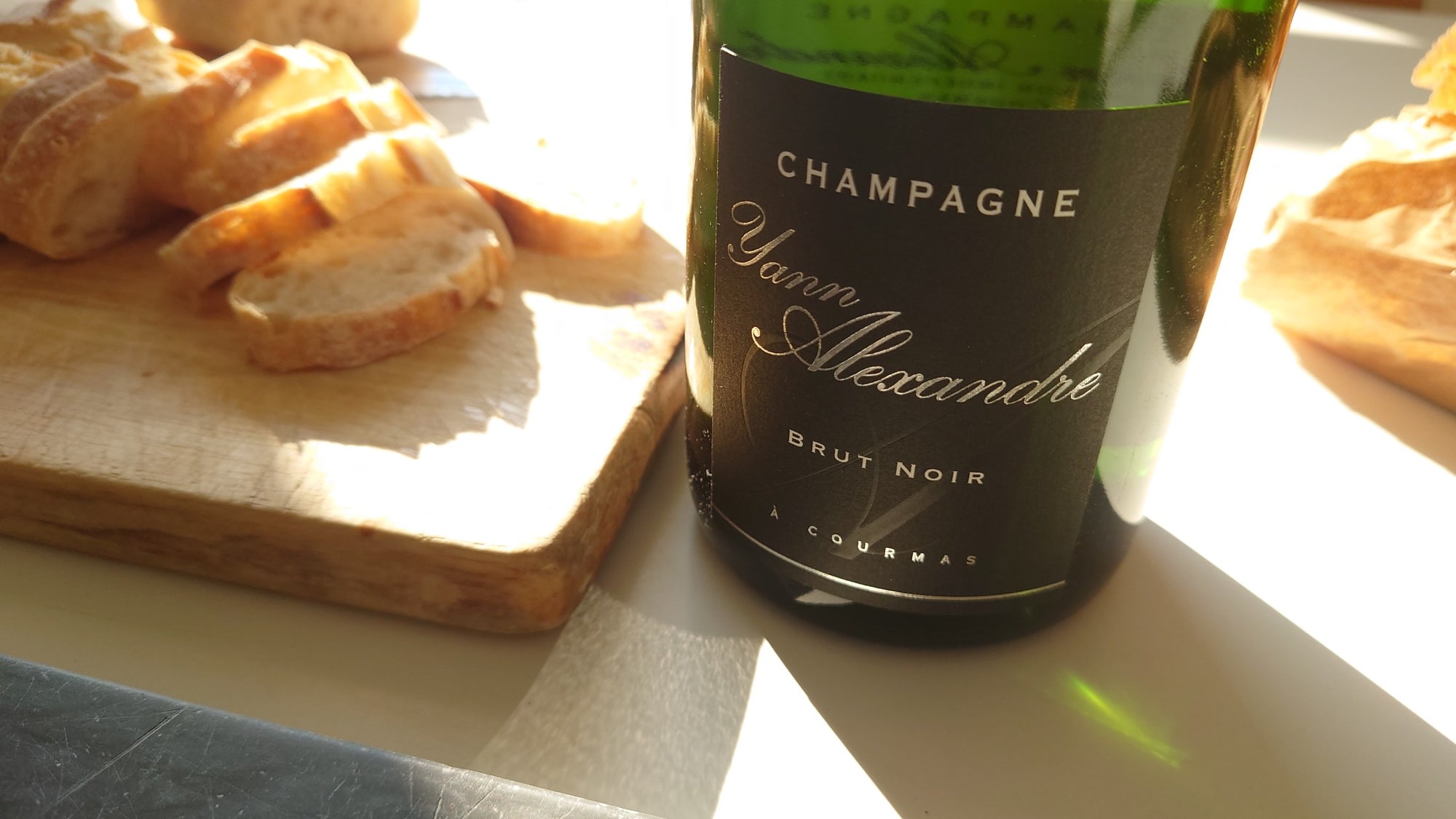
Is it Cabernet Sauvignon or cabernet sauvignon?
The New York Times and Slate.com don’t capitalize the names of grape varieties but practically everyone else does. What, then, is the correct usage?
This may seem a little geeky or pedantic but it’s important for anyone who writes about wine. I seem to revisit this question every couple of years without satisfaction.
byThis year, however, I believe I finally have the answer thanks to some online research and a series of emails with Tyler Colman AKA Dr. Vino. Since neither Tyler or I have the book, the assumption is that the New York Times Manual of Style and Usage says not to capitalize grape variety names. Thus not knowing what they base their no-caps decision on, we turned instead to Wikipedia to investigate naming conventions in botany and found some interesting things: from the Variety (Botany) page:
In viticulture, what is referred to as "grape varieties" are in reality cultivars rather than varieties according to usage in the International Code of Nomenclature for Cultivated Plants, since they are propagated by cuttings and have properties that are not stable under sexual reproduction (seed plants). However, usage of the term variety is so entrenched in viticulture that a change to cultivar is unlikely.Ok, since it’s actually a cultivar, I went to the Cultivar page to see how they’re named:
A cultivar name consists of a botanical name (of a genus, species, infraspecific taxon, interspecific hybrid or intergeneric hybrid) followed by a cultivar epithet. The cultivar epithet is capitalised and put between single quotes: preferably it should not be italicized. Cultivar epithets published before 1 January 1959 were often given a Latin form and can be readily confused with the specific epithets in botanical names: after that date, newly coined cultivar epithets must be in a modern vernacular language to distinguish them from botanical epithets. Cryptomeria japonica 'Elegans' Chamaecyparis lawsoniana 'Aureomarginata' (pre-1959 name, Latin in form) Chamaecyparis lawsoniana 'Golden Wonder' (post-1959 name, English language) Pinus densiflora 'Akebono' (post-1959 name, Japanese language)
The technically correct nomenclature for a grape variety would then be: Vitis vinifera ‘Cabernet Sauvignon’.
It would be unnecessarily pedantic to include Vitis vinifera each time we write about grape varieties so what then is the proper way to condense the name? Should they be capitalized or not?
Based on this research, I’m going to continue to capitalize grape varieties. If it’s good enough for Jancis Robinson, Hugh Johnson, Robert Parker, Maynard Amerine and Emile Peynaud, it’s good enough for me. Tyler (a die hard New Yorker), however, isn't swayed by this evidence and will continue to not capitalize grape names along with the Times.
What do you think? Cabernet Sauvignon or cabernet sauvignon?



Comments
Hi Marcus,
It’s an honor to be your psychic answer desk and I’m glad that you now feel good about capitalizing grape varieties. I know I do. Syrah. Mourvèdre. Grenache. That felt good.
As for your second question, I believe both breeds have comfy chairs in Darwin’s waiting room but I’ll have to look into it further.
I sort of feel like a heel that I’ve never taken the time to check this out. Sure, I turned to the great grape guru, Jancis, for information on whether we should write ‘varietal’ or ‘variety’, but never thought twice that I should check and see if its Xarel.lo or xarel.lo. I fear that if you go back in our posts, you’ll see a wide array of capitals and lowercase all mixed together in a nice little varietal sandwich. I suppose I need to pay more attention to my grape grammar ;-)
Gabriella may have inadvertently stumbled onto something… I’m thinking…
Cabernet sauvignon or cabernet Franc, peut-être?
Hi Gabriella,
I don’t think very many people pay much attention to this issue. I would definitely not pay attention to Marcus who is obviously stirring up trouble to shamelessly promote his latest Snak-Cam shots. They look tasty, though.
In this day an age with blogs and what not where spelling and punctuation seems to have taken a backseat to content, It really is up to who is writing. Me personally? I’m concentrating more on spelling Cabernet Sauvignon correctly than making sure it’s capitalized.
On those “v” words: “Variety” is a noun; “varietal” is an adjective. So grapes come in varieties, as in, say, “Cabernet sauvignon is my favorite grape variety.” A wine that is true to its grape is varietally correct. The whole “varietal” thing as a noun started in California in the mid or late 1980s.
Anyone else see the irony when “Imitation Perfume” criticizes other people’s content?
I tripped over this (and will be paying return visits!) while looking up information about the sex lives of grapes, to make sure my terminology was correct, going from French to English. So let me put in my two bits, as a wine writer but also as the author of a popular international English style guide, researched and written after years of struggling with conflicting styles guides because I wrote for Time, Business Week, the Christian Science Monitor, The European, the International Herald Tribune, the Financial Times. I’m not listing them for name-dropping purposes but to make my point that they all have or use good style guides and they disagree on too many points to list, starting with what you capitalize and what you don’t and why.Style guides are especially important for large publications that have many contributors or the end result would be chaotic and an unpleasant reading experience. I’ve been researching the caps for grapes issue lately because I’m preparing the first-ever English version of the bible on Swiss wines, Le Guide des Vins Suisses, an encyclopedic book with a team of six – we needed consistent rules from the start or we’d lose too much time (= money) arguing! I came to the same conclusion as Steve: use the capital letters. I’m American but working in Europe and while there is a general overall trend, started in the US, to make more words lower case, it hasn’t spread tas quickly outside the US. One of the big reasons is that lower case makes a web page far easier to read: a lot of good research shows this is the case. But with wine texts I don’t see this as much of an issue. And lower case grape names simple appear to many Europeans to be a mistake. I just checked out Jancis Robinson’s page and using this as an example, http://www.jancisrobinson.com/articles/20080708_1, I’d say the owner and place names sprinkled all over are more of a problem than the capped grape names, but I guess no one is going to write “the robert mondavi winery in napa valley, california.”
Got side-tracked while looking for Wine Century info, so I thought I’d chime in. This has been a conundrum for me too, since I’ve seen it written both ways. Cultivars, hybrids, and clones, oh my!! I’ve got an AP Stylebook (evidence of when I thought I wanted to be a journalism major) which says jack about grapes, cultivars, epithets, or even botanical and taxonomic names. With all respect toward the folk at the Times, they are journalists, not scientists; however, being the investigative folks that they are, I would hope they consulted botanists before canonizing the no-cap rule. Still, they are generalists, not subject matter experts, and maybe they will eventually catch up to the scientific standard. As I recall, the “common sense” of society ends up going with what science says, not the other way around. Remember when we learned people at one time believed it was obvious the Sun revolved around the Earth?
Holey smokes! I am awed and stunned that other people care about this pedantic minutiae as much as I! I posted a similarly themed blog entry for my wine website, http://www.bruliamwines.com/2008/07/how-proper-is-your-pinot/, only to come across your musings today. Interestingly, I wrote the rough draft for my post some months ago, as soon as I got my UCD syllabus for the Introduction to Winemaking course. After reading your comments, in conjunction with my own thoughts as outlined in my post, I compiled an unofficial and admittedly biased study based on the wine books in my personal library. The following 4 authors do not capitalize variety names: John Winthrop Haeger (North American Pinot Noir), Ruth Reichl (Garlic and Sapphires, The Secret Life of a Critic in Disguise), Karen MacNeil (monthly columns in Cooking Light magazine), and Eric Asimov of the New York Times. However, the following folks do use caps: Halliday and Johnson (The Art and Science of Wine), Jay McInerney (A Hedonist in the Cellar), Harold McGee (On Food and Cooking), Gaiter & Breecher (WSJ Guide to Wine), and Oz Clarke (Grapes and Wine). Final tally – 5 to 4, in favor of caps. But in my heart, I still don’t think grape variety names in and of themselves are proper nouns. Now what do I do? Buy another book?